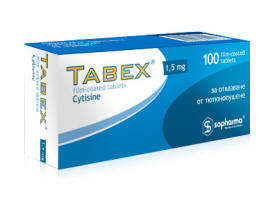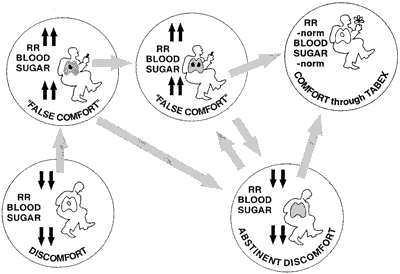Tabex, Cytisine the Effective and Fast product to Stop Smoking!
Quit smoking! Stop smoking with Tabex!
Tabex A Modern And Reliable Method For Giving Up Smoking!
For Clean Lungs And For A Healthy Hearth! Stop Smoking With Tabex!

PHARMACODYNAMICS OF CYTISINE
Cytisine is an agonist of the cholinoreceptors in the vegetative ganglia and belongs to the group of the gangliostimulating drugs. It excites the nicotine-sensitive cholinoreceptors of the postsynaptic membranes in the vegetative ganglia, chromaffin cells in the molecular part of the suprarenal gland and sinocarotid reflexogenic zone, which results in excitation of the respiratory center, predominantly through the reflexes, simulation of adrenaline release by the medullar part of the suprarenal glands and a rise in the blood pressure. After its absorption in the gastrointestinal tract, cytisine plays the part of a nicotine-substitute substance which decreases the period of interaction between nicotine and the corresponding receptors. This in turn leads to a gradual decrease and interruption of the smokers’ psychic and physical nicotine dependence.
Many researchers confirm in different pharmacological experiments the similarity between the pharmacological properties of cytisine and nicotine, as described by Dale & Laidlaw (1912) and confirmed also by the conclusions of Zachowsky (1937), Anichkov (1937), Dobrev and Paskov (1953), Daleva (1963), etc., in whose opinion cytisine is more potent as a gangliostimulating than as a ganglioblocking agent.
Fig. 3 Mechanism of action of cytisine. Creation of the vicious cycle of tobacco addiction and the way to exit from it by means of Tabex

This similarity between the peripheral effects of cytisine and nicotine is more quantitative than qualitative. Comparable effects of both drugs have been obtained in experiments on cats and rats (studies on the blood pressure), or on guinea-pig ileum and rat diaphragm, the doses of cytisine being 1/4 to 2/3 from the nicotine dose.
As regards the effects on the central nervous system, Cytisine has a weaker effect on the respiration of anesthetized rabbits, compared to the effects on the peripheral nervous system.
